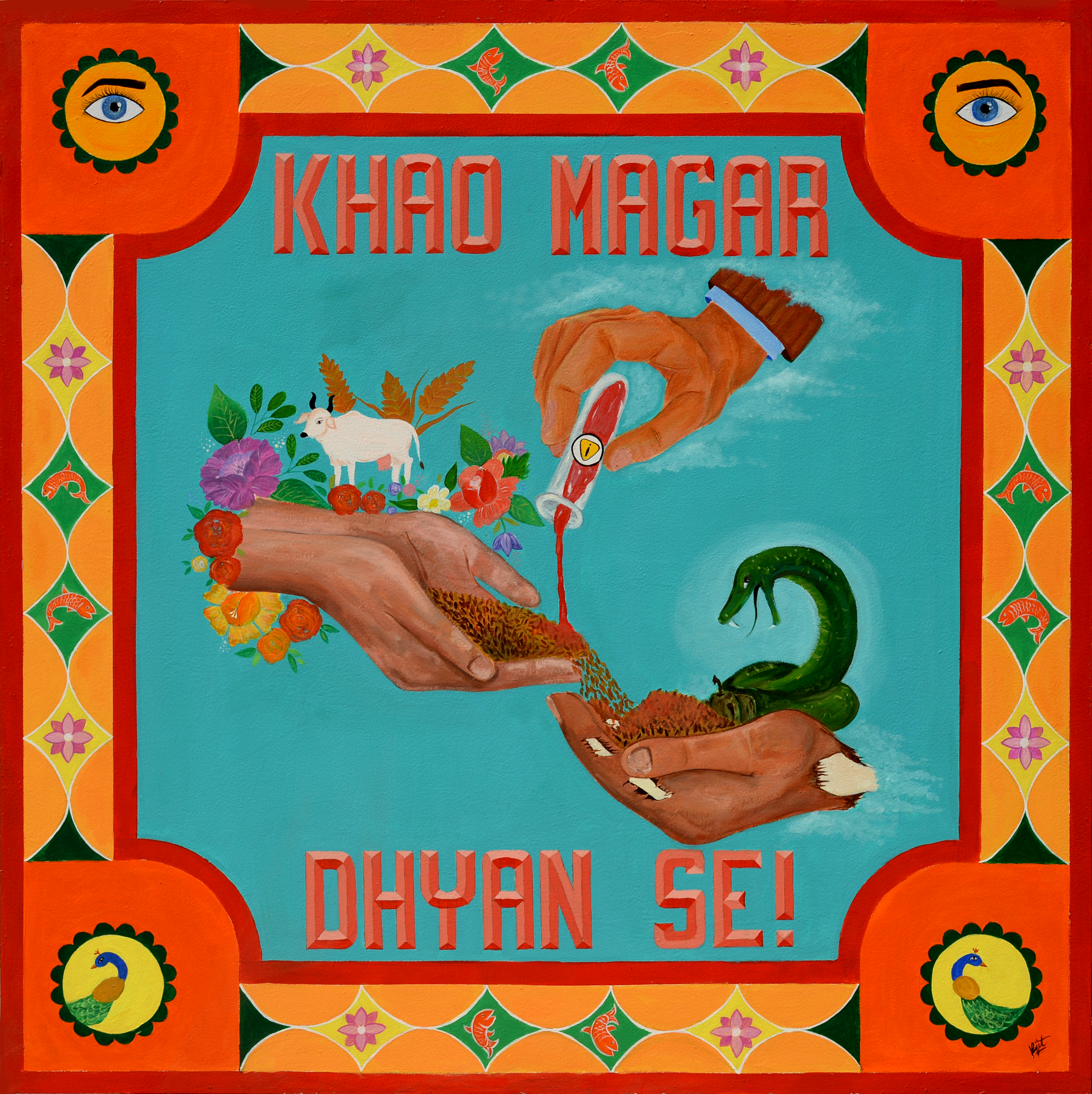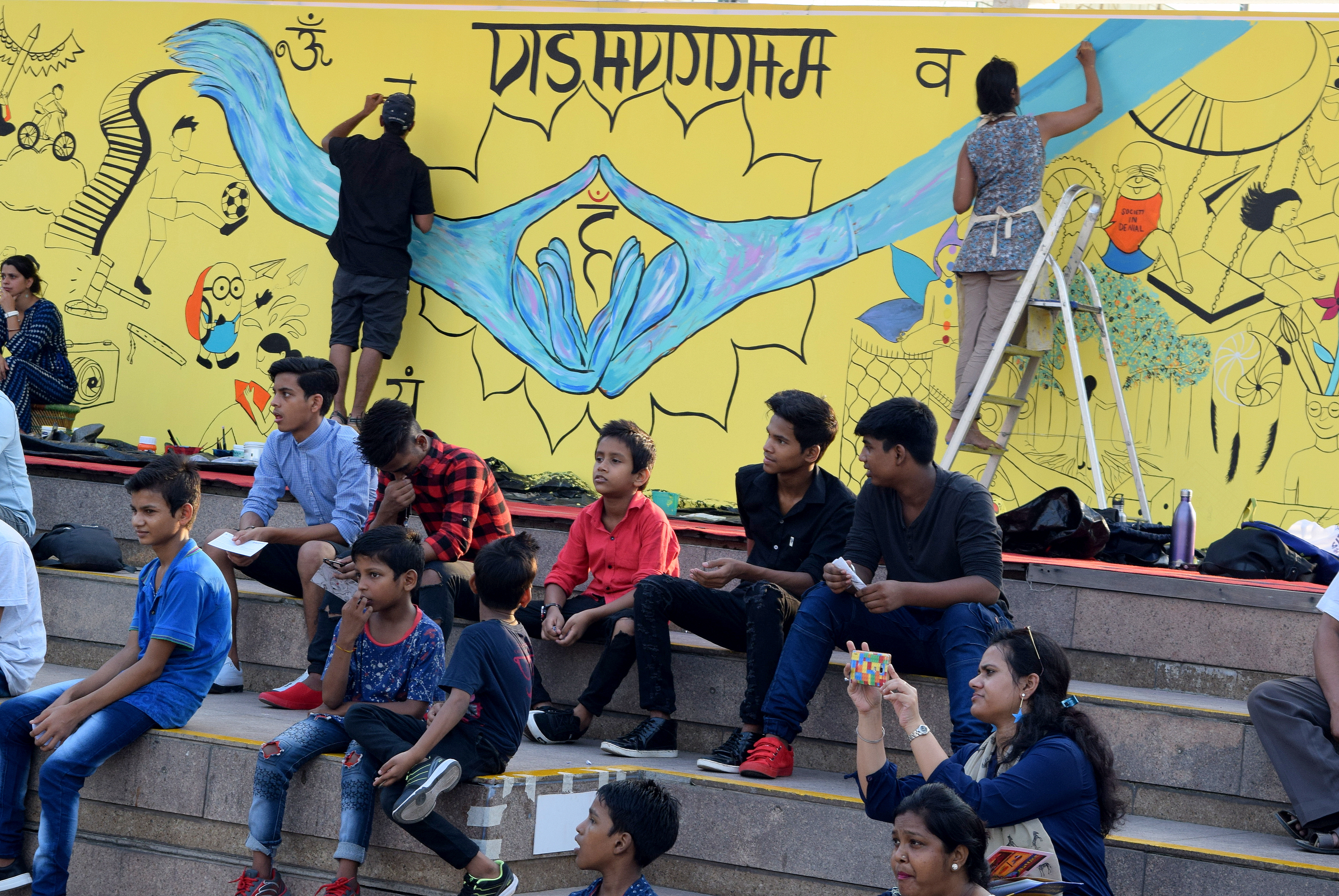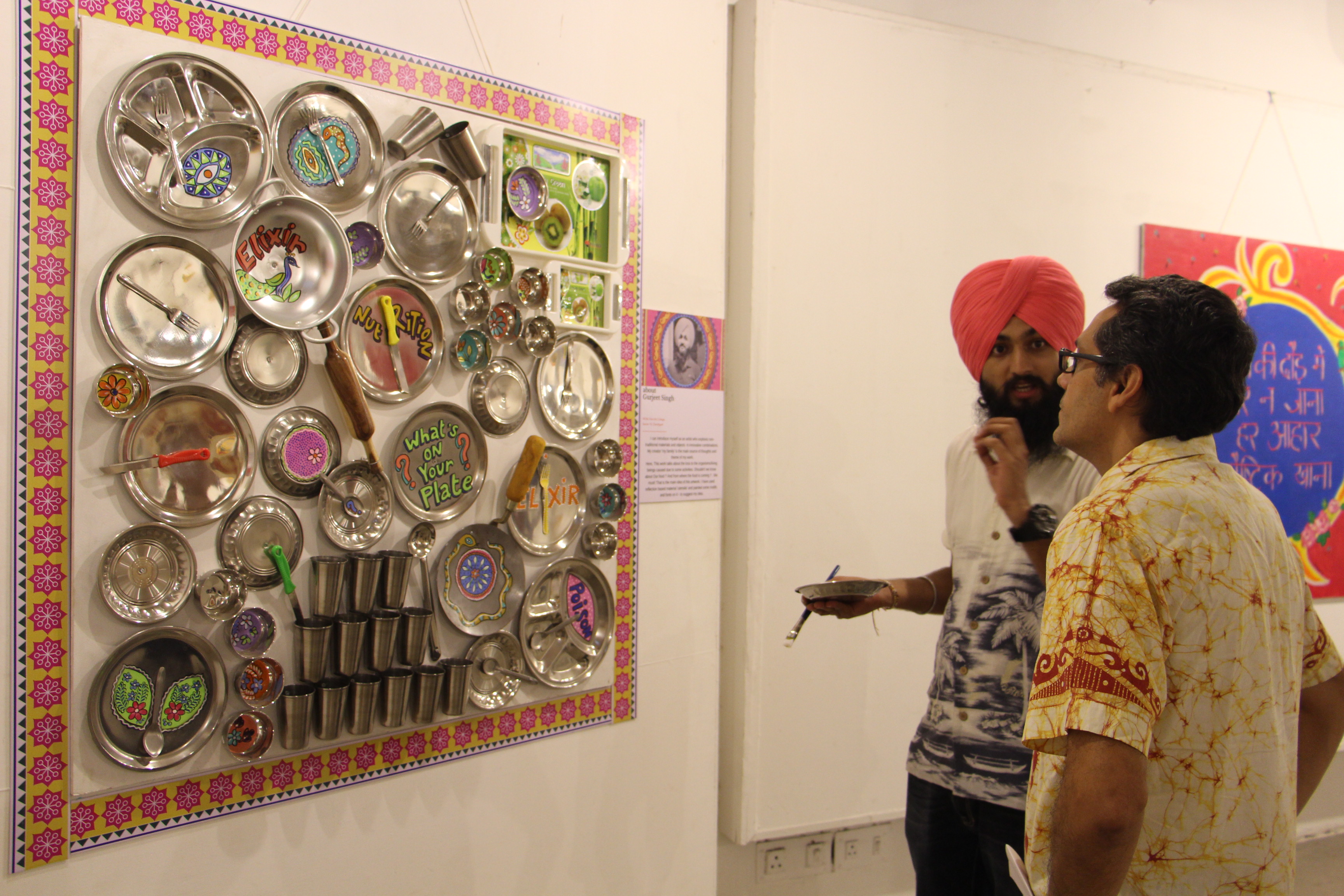Arting Health for Impact: India explored two pressing public health issues in India through the medium of creative arts; i) agrarian and food crisis and its impact on health and environment (Kheti Khana aur Hum) and, ii) workplace stress and its impact on mental health (Mental se Health ko Jodo).
A short video about Mental se Health Jodo (Add health to Mental)
The two projects were implemented in Chandigarh and Delhi, respectively, and differed in their design. In Chandigarh, the traditional Indian truck art was used to talk about the issue of how the current farming practices, food consumption behaviour and health are intricately linked and are damaging one another. Truck art was the chosen art form based on its relevance to the theme. Trucks are integral to the food and agricultural system, transporting food from the farm to the market. They are also traveling canvases that have been used to depict slogans, precautionary messages, colourful paintings, attractive calligraphy, and beautiful scenery.
In Delhi the role of how stress at one's workplace is significantly impacting mental and physical well-being was discussed. Ways to tackle it on an individual as well as a community level using the conventional medium of wall or street art was explored.
The two projects brought artists and scientists together to create the artworks. This collaboration enabled them to appreciate eachother’s practices and their own responsibility towards society. The created artworks provoked deep reflection and public conversations on these important health issues and are intended to lead to action to improve the health of the country. The project titles were purposely conceived in Hindi and Hinglish (combination of Hindi and English) in order to make the program inclusive and accessible to a larger audience.
This project was part of an international collaborative public engagement initiative. One of the unique and significant aspects of this multilateral and multinational project was the experience and resource-sharing between public engagement practitioners in India, Botswana and South Africa. This ensured that in spite of the project being implemented in different countries, it imbibed a global sensibility and adopted universal human values and ethics when it came to engaging with the public on issues related to science and health in each country.




Please Sign in (or Register) to view further.